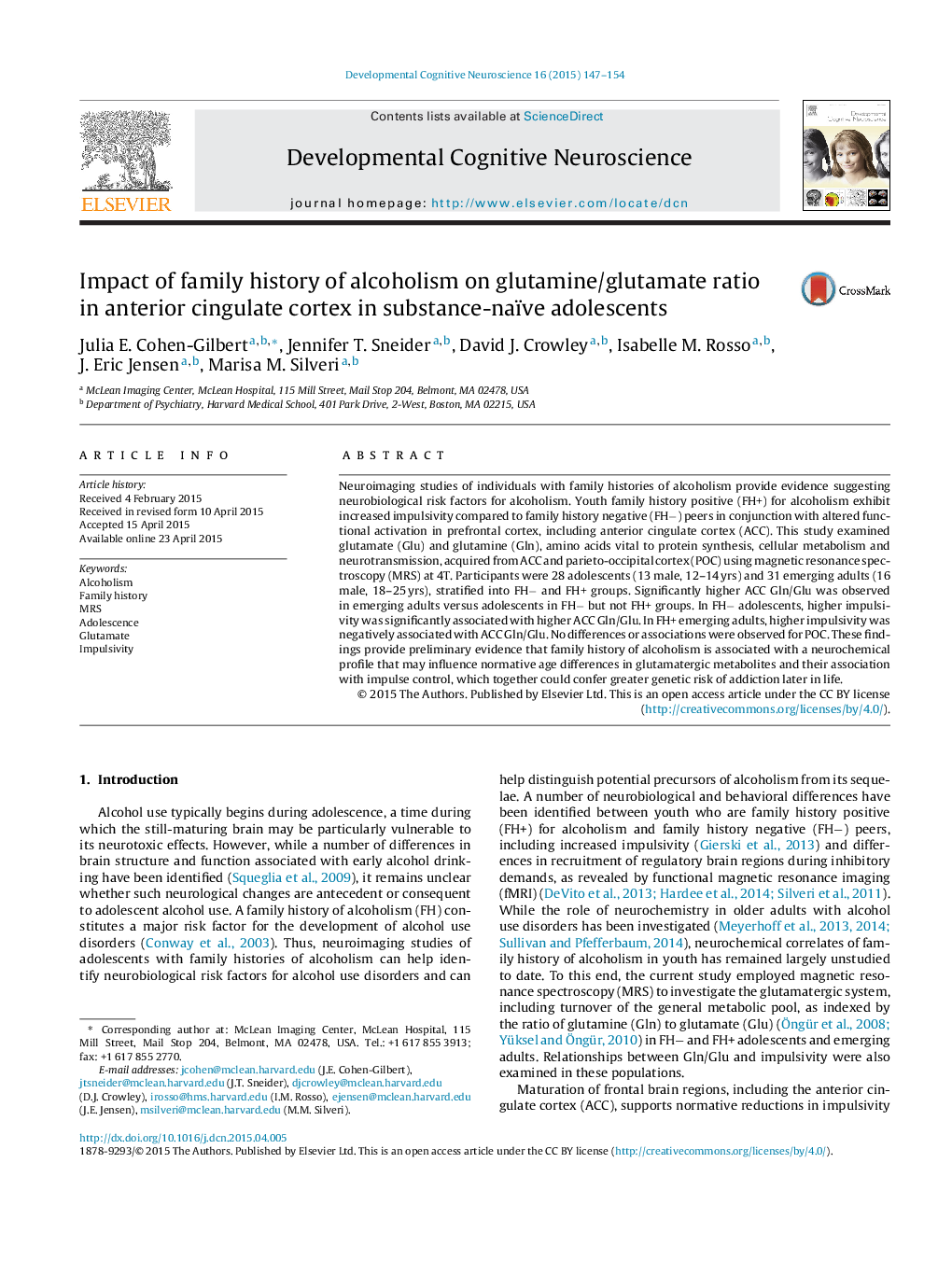| کد مقاله | کد نشریه | سال انتشار | مقاله انگلیسی | نسخه تمام متن |
|---|---|---|---|---|
| 4316527 | 1613107 | 2015 | 8 صفحه PDF | دانلود رایگان |
• Family history of alcoholism was studied with MRS in adolescents and emerging adults.
• Glutamine/glutamate ratio was measured at 4T to index glutamate neurotransmission.
• Within FH−, emerging adults had significantly higher Gln/Glu ratios than adolescents.
• Within FH+, no age-related differences were observed in Gln/Glu ratios.
• Gln/Glu correlated with impulsivity in FH− adolescents and FH+ emerging adults.
Neuroimaging studies of individuals with family histories of alcoholism provide evidence suggesting neurobiological risk factors for alcoholism. Youth family history positive (FH+) for alcoholism exhibit increased impulsivity compared to family history negative (FH−) peers in conjunction with altered functional activation in prefrontal cortex, including anterior cingulate cortex (ACC). This study examined glutamate (Glu) and glutamine (Gln), amino acids vital to protein synthesis, cellular metabolism and neurotransmission, acquired from ACC and parieto-occipital cortex (POC) using magnetic resonance spectroscopy (MRS) at 4T. Participants were 28 adolescents (13 male, 12–14 yrs) and 31 emerging adults (16 male, 18–25 yrs), stratified into FH− and FH+ groups. Significantly higher ACC Gln/Glu was observed in emerging adults versus adolescents in FH− but not FH+ groups. In FH− adolescents, higher impulsivity was significantly associated with higher ACC Gln/Glu. In FH+ emerging adults, higher impulsivity was negatively associated with ACC Gln/Glu. No differences or associations were observed for POC. These findings provide preliminary evidence that family history of alcoholism is associated with a neurochemical profile that may influence normative age differences in glutamatergic metabolites and their association with impulse control, which together could confer greater genetic risk of addiction later in life.
Journal: Developmental Cognitive Neuroscience - Volume 16, December 2015, Pages 147–154
